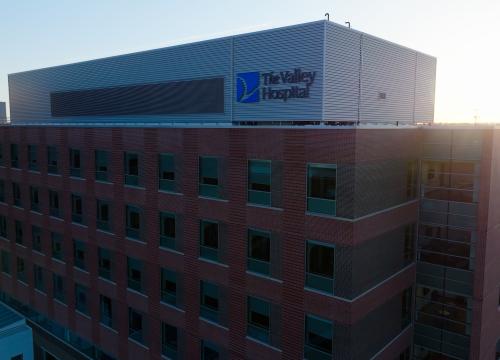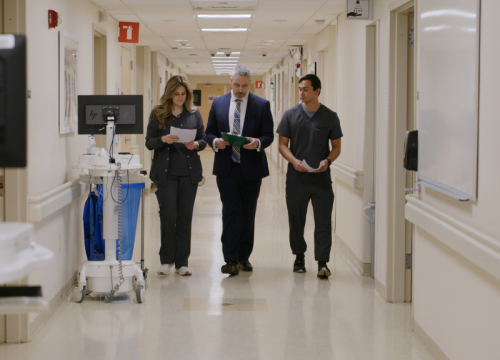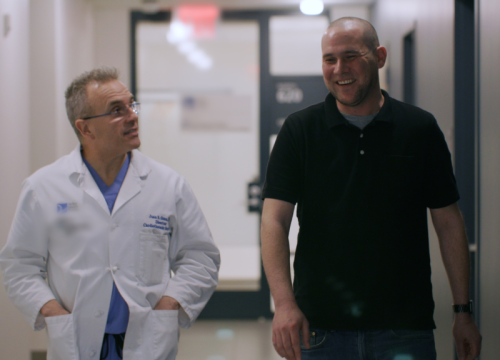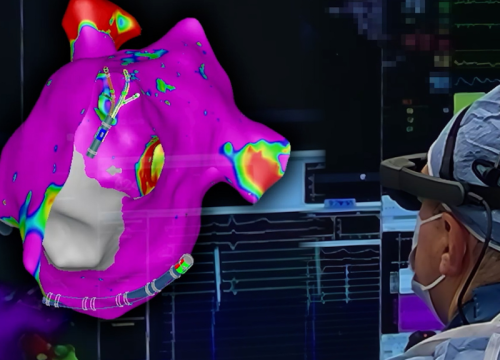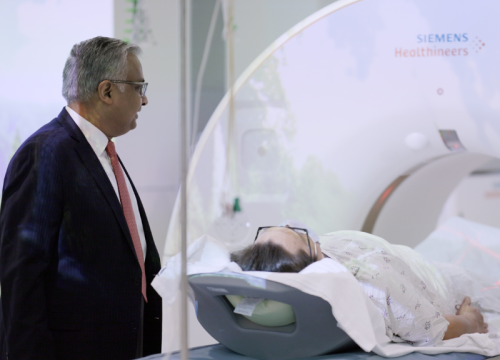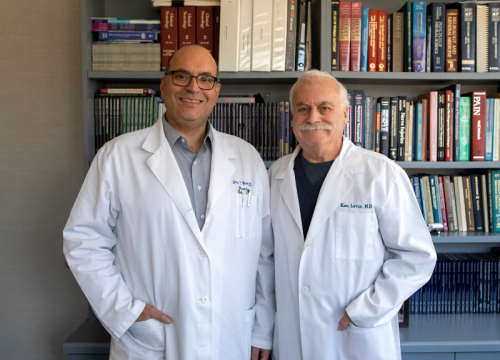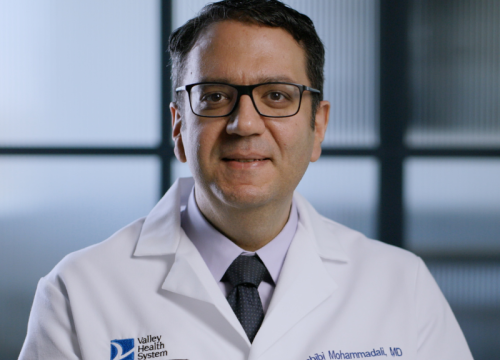For decades, having brain surgery often meant long hospital stays and recovery times, significant scarring and potential complications. Today, thanks to state-of-the-art tools and techniques, many brain surgeries can be faster, less invasive and more effective.
Whenever possible, Valley’s neurosurgeons take a minimally invasive approach to brain surgery. They’re specialists in leading-edge surgical techniques that use small incisions or no incisions at all. And they use advanced tools that enable incredible precision, sparing healthy brain tissue.
The result: excellent outcomes with less pain, fewer complications and faster recovery for most patients
At Valley, we offer minimally invasive brain surgery to treat a wide range of brain conditions. You’ll find the same technology and level of surgical expertise here that you’d find at large medical centers in New York City. Our difference lies in our personal approach and our comfortable setting close to home.
Am I a Candidate for Minimally Invasive Brain Surgery?
At Valley, our neurosurgeons can treat most brain conditions with minimally invasive surgery.
Minimally invasive brain surgery may be an option if you have:
- A benign or malignant brain tumor, skull base tumor, meningioma, vestibular schwannoma (a.k.a., acoustic neuroma), pituitary tumor or metastatic brain cancer
- Abnormal blood vessels in your brain, such as arteriovenous malformation (AVM) or dural arteriovenous fistula (DAVF)
- Facial pain or spasms, including hemifacial spasm and trigeminal neuralgia
- Cerebrovascular disease, such as carotid artery stenosis
Our Valley team may use a minimally invasive approach if you have a medical emergency, such as a brain aneurysm or hemorrhagic stroke.
If you have an especially complex condition, your neurosurgeon may recommend traditional open surgery. They’ll still use the least invasive methods possible to treat you.
Benefits of Minimally Invasive Brain Surgery
Compared with open brain surgery that uses larger incisions, minimally invasive brain surgery offers most patients many benefits, including:
- Less time in the operating room
- Less bleeding
- Less pain
- Less anesthesia
- Fewer complications after surgery
- Shorter hospital stays
- Faster recovery
- Smaller scars, or no scars at all
- No removal of large pieces of skull bone (traditional craniotomy)
Another advantage: If your treatment plan includes radiation or chemotherapy after surgery, the short recovery time lets you start treatment right away. With open surgery, you need time to heal before the next phase of your treatment.
Types of Minimally Invasive Brain Surgery
Valley’s neurosurgeons offer many types of minimally invasive brain surgery. Your neurosurgeon will work with you to determine which approach is best for you.
Some of the minimally invasive brain surgery procedures available at Valley include:
- Endoscopic endonasal surgery: No incisions are needed for this advanced approach that uses state-of-the-art imaging. Your neurosurgeon can remove a pituitary tumor or other type of skull base tumor through your nose.
- Endovascular neurosurgery: This approach uses a small incision in your groin or wrist, through which your surgeon guides a flexible, hollow tube (catheter). The catheter passes upward through your blood vessels into your brain. It can be used to dissolve a blood clot, open a narrowed artery or seal a weak blood vessel to prevent it from bursting.
- Gamma Knife radiosurgery: This noninvasive treatment sends targeted beams of radiation into your brain. It can help treat primary and metastatic brain tumors, stop nerves from sending pain signals and prevent abnormal blood vessels from leaking blood into your brain. Gamma Knife radiosurgery treats benign and malignant conditions.
What to Expect With Minimally Invasive Brain Surgery
Our goal for all brain surgeries at Valley is to take the least invasive, most effective approach possible. We’ll tailor your procedure to your unique diagnosis.
We start by discussing your treatment options with you — making sure you understand all the risks and benefits. Once we’ve determined the right treatment for you, we’ll walk you through what to expect.
Focus on patient education
Your surgical preparation and recovery will vary depending on the procedure you’re having. But the common thread regardless of the type of surgery you’re having is our commitment to patient education.
Your care team will make sure you understand what to expect before, during and after your procedure. They’ll also answer your questions and can connect you with resources like home care or outpatient rehabilitation, if needed.
Why Choose Valley for Minimally Invasive Brain Surgery?
- Second opinions, close to home: If you’ve been told you need brain surgery, our neurosurgeons can evaluate whether you’re a candidate for a minimally invasive procedure — and you don’t have to travel to the city to get the most advanced procedures available. Valley neurosurgeons are highly skilled in performing many types of minimally invasive brain surgery.
- Intraoperative MRI: Two operating suites in The Valley Hospital in Paramus (opening April 14, 2024) will be separated by an MRI machine allowing surgeons, particularly neurosurgeons, to pause during an operation, wheel the patient just steps away to obtain an MRI, then return the patient to the operating room. The intelligence obtained from the scan will help surgeons determine if additional surgical work is required before the procedure is completed.
- Caring for you and your family: To help you prepare for surgery, a neurosurgery nurse practitioner will explain in detail what you can expect in the hospital. On the day of your surgery, patient care navigators will keep your loved ones informed. And our support continues even after you leave the hospital. We’ll follow up with you at home; if you need it, we’ll arrange for outpatient rehabilitation and home care.
- Coordinated care: Valley specialists work together closely on your personalized care plan. Your multidisciplinary care team includes your neurosurgeon, who leads the team, along with your neurologist, oncologist and other experts. They collaborate before, during and after your procedure to make sure you have a seamless experience at Valley.
- State-of-the-art tools: Your neurosurgeon will use the latest technology to plan and perform your surgery. Prior to your surgery, they will use imaging to create a 3D brain map to visualize the precise spot they need to reach and the best way to get there. During surgery, advanced computer guidance and neuromonitoring systems will help them protect healthy brain tissue. Ultrasonography may be used to track tumor resection, and fluorescein-guided neurosurgery allows for more complete surgical resections while sparing the normal surrounding brain.
- Neuroscience intensive care unit (ICU): If you need it, you may recover in a private room in our dedicated neuroscience ICU. This specialized ICU is staffed by doctors and nurses with expertise in treating patients after brain surgery.



